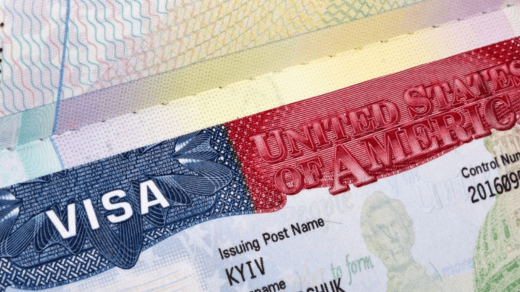The 90-day rule in the context of the Adjustment of Status (AOS) process in the United States refers to a guideline used by U.S. Citizenship and Immigration Services (USCIS) to determine whether an individual violated their nonimmigrant status while in the United States. The rule is not an official law or regulation, but rather a policy that USCIS follows.
Here’s how the 90-day rule works:
- Nonimmigrant Status: Many foreign nationals in the United States are present on nonimmigrant visas, such as B-1/B-2 (tourist), F-1 (student), H-1B (work), etc. These visas are typically issued for a specific purpose and duration.
- Intent and Change of Status: When someone enters the U.S. on a nonimmigrant visa, they are expected to have a nonimmigrant intent, which means they should not intend to stay in the U.S. permanently. However, if they change their intent within 90 days of entry (e.g., by getting married to a U.S. citizen or green card holder), it can be considered a violation of their nonimmigrant status.
- Adjustment of Status: If a person who violates their nonimmigrant status within 90 days of entry applies for Adjustment of Status (Form I-485) to become a U.S. permanent resident (green card holder), USCIS may scrutinize the case more closely. They may question whether the individual misrepresented their intentions when entering the U.S. on a nonimmigrant visa.
- Beyond 90 Days: If the change of intent occurs after 90 days of entry, it may be less likely to be considered a violation of nonimmigrant status, but USCIS can still consider other factors.
It’s important to note that the 90-day rule is not a strict, inflexible rule, and individual circumstances can vary. USCIS may examine each case on its own merits, taking into account various factors, such as the timing of the change in intent, the type of nonimmigrant visa held, and other relevant factors.
How to comply with the 90-day rule when I file my I-485 application?
Complying with the 90-day rule when filing your Form I-485 application (Application to Register Permanent Residence or Adjust Status) is important to avoid any potential issues with U.S. Citizenship and Immigration Services (USCIS). Here are some steps to help you navigate this rule when submitting your I-485 application:
- Understand the 90-Day Rule: Familiarize yourself with the 90-day rule and its implications, as described in my previous response. Ensure you have not engaged in any actions that could be seen as a violation of your nonimmigrant status during the 90 days preceding your I-485 application.
- Seek Legal Advice: Consult with an experienced immigration attorney who can evaluate your specific circumstances and guide you through the process, especially if there are any complexities in your situation.
- Maintain Accurate Records: Keep accurate records of your activities and intentions while in the U.S. leading up to your I-485 application. This documentation can be important in case USCIS has questions about your intentions or activities during that period.
- Wait Beyond the 90-Day Period: To be absolutely sure that you are in compliance with the 90-day rule, consider waiting until after the 90-day mark has passed before filing your I-485 application. This means that any change in intent or circumstances that might be seen as violating your nonimmigrant status should have occurred outside of this 90-day window.
- Provide Clear and Consistent Documentation: When you file your I-485 application, provide documentation that supports your eligibility for adjustment of status. This includes proof of your eligibility category, financial support, medical examinations, and any other required documentation. Make sure the evidence demonstrates your genuine intent and eligibility for adjustment of status.
- Be Honest and Transparent: In all communications with USCIS, be honest and transparent. If USCIS requests information about your activities or intent within the 90-day period, provide accurate and complete responses.
- Prepare for Potential Scrutiny: Be aware that if USCIS has concerns about your compliance with the 90-day rule, they may request additional evidence or conduct interviews. Be prepared to address any questions or concerns they may raise.
- Follow Legal Advice: If you are working with an immigration attorney, follow their advice closely, especially when responding to USCIS inquiries or attending interviews.
- Keep Updated: Immigration policies and procedures can change, so it’s essential to stay updated on the latest developments and any changes to USCIS policies or interpretations of the 90-day rule.

